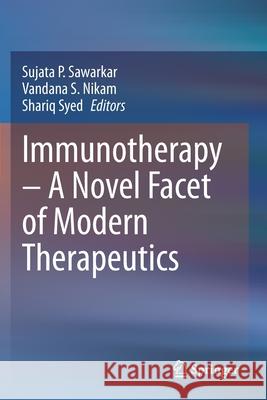Immunotherapy - A Novel Facet of Modern Therapeutics » książka
topmenu
Immunotherapy - A Novel Facet of Modern Therapeutics
ISBN-13: 9789811590405 / Angielski / Miękka / 2021 / 272 str.
Immunotherapy - A Novel Facet of Modern Therapeutics
ISBN-13: 9789811590405 / Angielski / Miękka / 2021 / 272 str.
cena 684,33
(netto: 651,74 VAT: 5%)
Najniższa cena z 30 dni: 655,41
(netto: 651,74 VAT: 5%)
Najniższa cena z 30 dni: 655,41
Termin realizacji zamówienia:
ok. 16-18 dni roboczych.
ok. 16-18 dni roboczych.
Darmowa dostawa!
This book illustrates the significance and relevance of immunotherapy in modern-day therapeutics. Focusing on the application of immunotherapy in oncology, neurodegenerative and autoimmune diseases, it discusses the drug delivery systems, and pre-clinical and clinical methodologies for immunotherapy-based drugs. It also comprehensively reviews various aspects of immunotherapy, such as regulatory affairs, quality control, safety, and pharmacovigilance.
Further, the book discusses the in vitro validation of therapeutic strategies prior to patient application and management of immunotherapy-related side effects and presents case studies demonstrating the design and development (pre-clinical to clinical) of immunotherapy for various diseases. It also describes various design considerations and the scale-up synthesis of immunotherapeutics and screening methods. Lastly, it explores the important aspect of cost-effectiveness and rational immunotherapy strategies.











